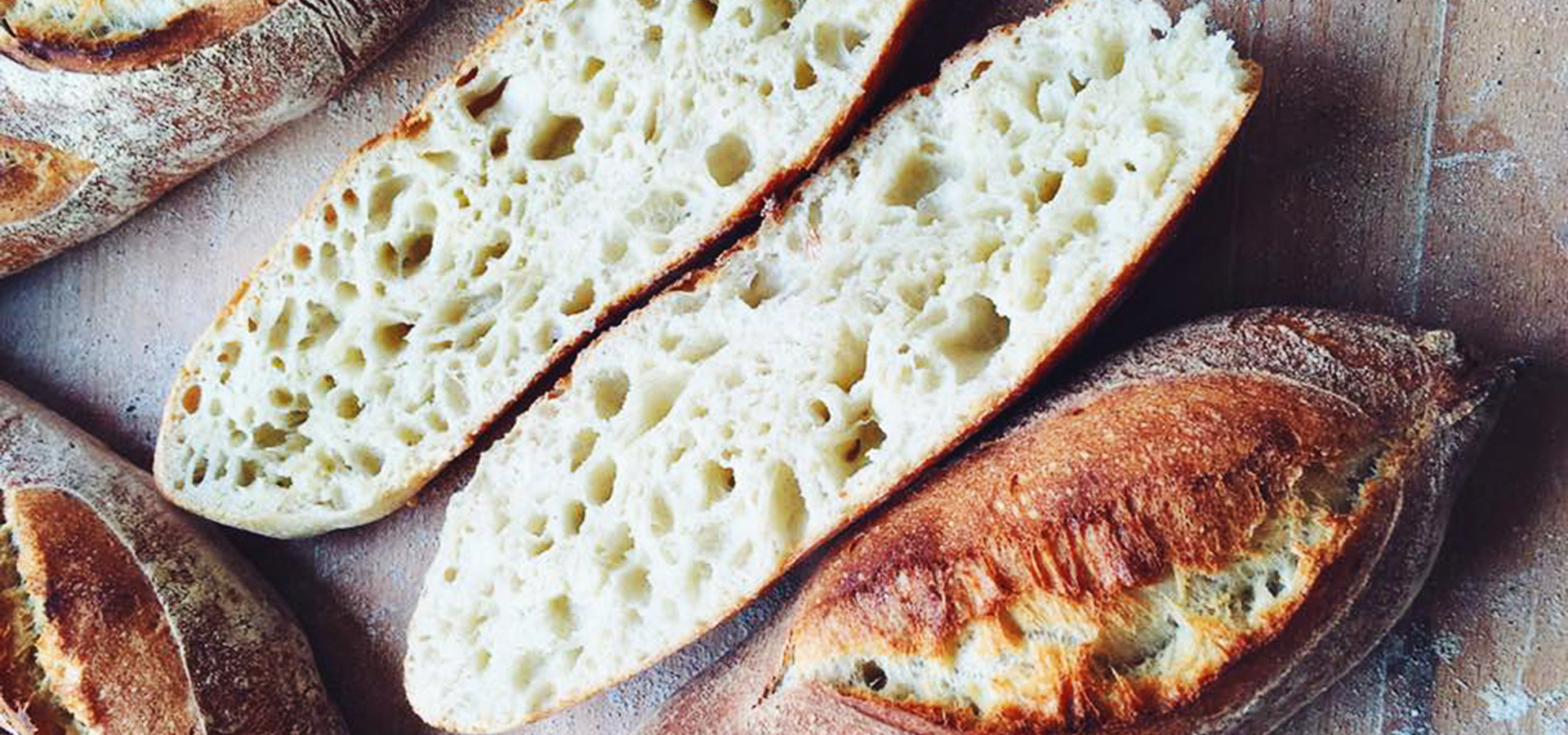The kitchen was quiet, and the house more so. The yeast was fresh; the flour sifted. After thirty-five minutes of gathering the dough and pushing it back, repeating until it felt pillow soft, I raised my hands, trying to free myself of the bits that clung to my fingers. My sister came in from behind me and said, “it should probably have its own villainous name”. My days of riding high on a wave of perfectly-risen cakes were over.
“I can’t remember when I first baked bread, actually.”
Raluca Micu is a force to reckon with. It’s 10am for the rest of us but she operates on bakers’ hours. Her day begins at 5am. By 5.30am, she’s at the bakery to turn on the ovens. A daily schedule follows. Weighing, sifting, baking, shaping, proving, baking, and chatting with customers are only part of her engagements at her 11-month-old bakery, October 26.
Everything is covered in a film of flour. The scent of slightly charred toast hangs in the air along with steam, like fragrant, swooping clouds. This causes condensed little droplets to arrange themselves around the cyclic logo on the bakery windows From the outside, it appears as if something steamy were underway, and even the windows are hot and heavy.
As Raluca talks to me about growing up in Romania, she is shaping baguettes. In France, a baguette must weigh 250 grams, with a diameter of about five or six centimetres, and a usual length of about 65 centimetres. It is the law. Raluca herself is un petit. She has managed to shape twelve baguettes in a span of 20 minutes without looking directly at them. They are all alike, and this comes to her without any formal training. I feel a twinge of envy. They are shoved into the oven, as she continues to talk about her days working at communications giant EE as “very dull”. She works swiftly on a batch of ganache for the chocolate éclairs (the only other non-bread item available at her shop), and wipes the steel top clean of all the flour. As she does so, more flour settles onto the counter.
Romania was boring and she was tired of complaining about it. “It was just a feeling; you can’t change anything, but, can’t live with it either.” She moved to London with a job at what was then-Orange. “I worked there for 11 years, and complained to my colleagues the entire time.” When she speaks of her mother passing away from cancer, she stops for a minute. There is a whirlpool of floury steam behind her, straight out of an alley of a noir film.
A lot propelled her to move to London, mostly centered around October 26.
“It’s my birthday, my half-sister’s birthday, the day my mother died,” she tells me. “I was very sure that I wanted the name to represent me.”
OCD-satisfying, symmetrical black-and-white photos are within her line of vision from the kitchen. The people in the pictures, some kids, some not, smile widely. The minimalist space was designed and assembled by an architect friend, the one that she first scouted it with. It took some visualising, with the help of a combined Pinterest board, she tells me.
Raluca is clearly popular in the neighbourhood. When we walk down to get coffee a few minutes later, she stops to chat with a few residents who also double as regular customers. Customers that are friends often concoct strange requests, too. She turns away a customer attempting to moonlight as a friend, and asking for bread to be baked in the shape of a star.
The fame was incidental, much like some of the events that propelled her to open shop. Raluca found this space in Askew Road while dropping her daughter off to pre-school. Fiona, three years old, is just as determined and only willing to explore “beige foods” as dinnertime options for now. Raluca and her have an ongoing tradition meant to make Monday mornings bearable. They come in frightfully early and break for breakfast by popping over for a babyccino next door.
Sundays are her only non-floury days. She gets roped in to make the occasional cake or two, and in some anonymously famous cases, 200 individual baguettes for the coveted Oxford Food Symposium. She stayed up all night at the shop and baked 200 loaves, of which 120 were sent to the customer who requested. Later, he contributed to her word-of-mouth campaign, and thus, her organic growth. This, I am sure, contributes to her quiet air of confidence.
There are sacks of flour from Shipton Mills by the counter, paving the way to an open bakery. Often, it is a conversation starter. Her chocolate eclairs are made with Valhrona chocolate callets, which roughly costs a little over 25 pounds for a kilo. She is flexible when it comes to recipes, though. The taste and quality does not waver, and she does not get torn up over the flour blends.
My own naive brushes with bread baking have been the few sore, sunken spots in my baking trajectory, usually dotted with evenly spaced moments of glory. Sprightly, smelly yeast has died under my inefficient thumbs. This propelled enough self-doubt, which eventually became thinly-veiled contempt. “I don’t really care for bread,” I’d say, eating a few slices—referring to baking and not eating them, of course.
Raluca’s calming presence in her frenzied kitchen and life leaves me with the kind of sense of optimism a runner feels right before the race begins, or the jitters that come from drinking too much coffee. I don’t need to stick to the rules. There is no system, which is a system in itself. She has assured me: the proof is in the pudding.




